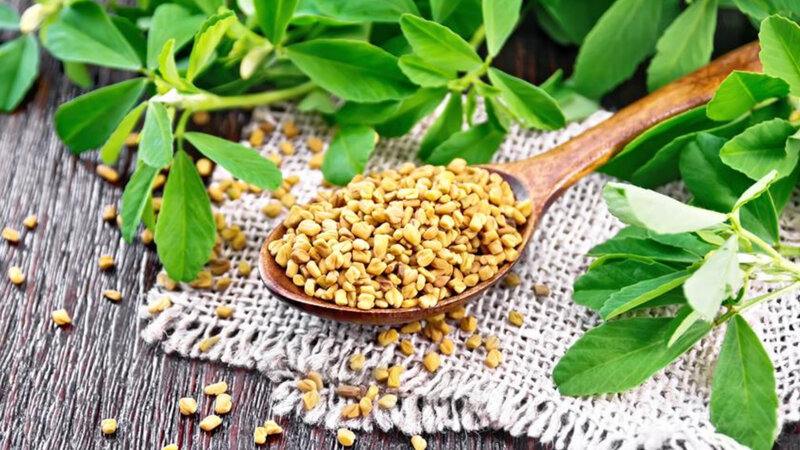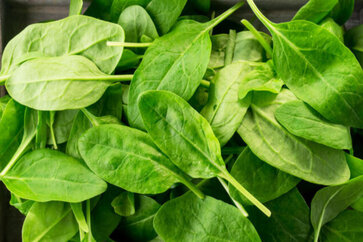Health Benefits Of Methi Fenugreek Seeds
Fenugreek seeds have gained widespread popularity in the culinary traditions of Middle and Far East countries. However, in Western regions, fenugreek is not as widely recognized compared to other spices.
Beyond its distinct flavor and aroma, fenugreek possesses significant disease-preventing properties. Throughout history, fenugreek has been utilized in traditional medicine to address various health conditions.
It is cultivated as a plant in several countries, including India, France, Argentina, the United States, North Africa, and Mediterranean regions, primarily for its applications in food, medicine, dyes, condiments, and fodder.
This annual erect herb features trifoliate leaves and stands at a height ranging from 0.3 to 0.8 meters. As the summer season sets in, its white flowers transform into yellow-brown pods, characterized by their slender and elongated shape. Within these pods lie the brown seeds that are traded as fenugreek.
Fenugreek Common Names
Fenugreek is known by several common names in different regions and languages. Here are some of the common names for fenugreek:
1. English: Fenugreek, Bird’s Foot, Greek Hay
2. Hindi: Methi, Methi Dana
3. Arabic: Hilba, Helba
4. Spanish: Alholva, Fenogreco
5. French: Fenugrec
6. German: Bockshornklee
7. Italian: Fieno Greco
8. Portuguese: Feno Grego
9. Turkish: Çemen, Köpek Üzümü
10. Chinese: Hu Lu Ba, Hu Lu Ba Fen
These are just a few examples of the common names used to refer to Fenugreek in various languages and cultures around the world.
Fenugreek Native Region
Fenugreek is believed to have originated in the eastern Mediterranean region, specifically in the area encompassing Egypt, Greece, and Western Asia.
It has been cultivated and used in these regions for thousands of years. Fenugreek is also native to India and is widely grown and utilized in Indian cuisine and traditional medicine.
Today, fenugreek is cultivated and grown in various countries across the globe, including India, Egypt, Morocco, France, Argentina, the United States, and many Mediterranean countries.
It is adaptable to different climates and can be found in both temperate and subtropical regions.
What Happens If We Eat Fenugreek Seeds Daily?
Fenugreek is known for its various healing properties, which have been recognized and utilized in traditional medicine systems for centuries. Here are some of the notable healing properties associated with fenugreek:
1. Anti-inflammatory
Fenugreek possesses anti-inflammatory properties that can help reduce inflammation and associated symptoms. It may be beneficial in conditions such as arthritis, skin irritations, and gastrointestinal inflammation.
2. Antioxidant
Fenugreek is rich in antioxidants, including flavonoids and polyphenols, which help protect against oxidative stress and damage caused by free radicals. Antioxidants support overall health and may have anti-aging effects.
3. Digestive Health
Fenugreek has been traditionally used to aid digestion and improve gastrointestinal health. It may help alleviate digestive issues such as indigestion, bloating, and constipation. Fenugreek seeds are also known to stimulate appetite.
4. Blood Sugar Regulation
Fenugreek has been studied for its potential to help regulate blood sugar levels. It may improve insulin sensitivity, reduce post-meal blood sugar spikes, and assist in managing diabetes. However, individuals with diabetes should consult a healthcare professional before using fenugreek for this purpose.
5. Hormonal Balance
Fenugreek contains compounds that may have estrogen-like effects. It has been used traditionally to support hormonal balance, alleviate menstrual discomfort, and promote milk production in breastfeeding women.
6. Respiratory Health
Fenugreek has expectorant properties and can help relieve respiratory congestion and cough. It is often used in herbal remedies for respiratory conditions such as bronchitis and asthma.
7. Skin Health
Fenugreek is believed to have benefits for the skin. It can be used topically or consumed to soothe skin irritations, reduce acne, and promote a healthy complexion. Fenugreek seed oil is also used in cosmetic products.
8. Cholesterol Regulation
Fenugreek has been studied for its potential to help lower cholesterol levels, particularly LDL cholesterol (the “bad” cholesterol). It may help inhibit the absorption of cholesterol in the intestines and promote its excretion, thereby supporting cardiovascular health.
9. Weight Management
Fenugreek seeds are rich in dietary fiber, which can promote feelings of fullness and aid in weight management. The fiber content helps slow down digestion and absorption of carbohydrates, potentially assisting in controlling blood sugar levels and managing appetite.
10. Breast Health
Fenugreek has been traditionally used to promote breast health and support lactation in nursing mothers. It is believed to have galactagogue properties, helping to increase milk production in breastfeeding women.
11. Liver Support
Fenugreek has been studied for its potential hepatoprotective effects, supporting liver health and function. It may help protect the liver from damage caused by toxins and assist in detoxification processes.
12. Heart Health
Fenugreek may have cardiovascular benefits, including improving heart health and reducing the risk of heart disease. It may help lower blood pressure, reduce inflammation, and enhance lipid profile by decreasing triglyceride levels.
13. Immune Support
Fenugreek contains various nutrients and antioxidants that can support the immune system. It may help strengthen the body’s defenses against infections and promote overall immune health.
14. Wound Healing
Fenugreek has been used traditionally for its potential wound-healing properties. It may help accelerate the healing process, reduce inflammation, and promote tissue regeneration when applied topically.
It’s important to note that while fenugreek has a long history of traditional use, scientific research is ongoing to fully understand its potential health benefits and the appropriate dosage and usage. It’s always recommended to consult with a healthcare professional before using fenugreek for medicinal purposes.
Home Uses Of Fenugreek Seeds
Fenugreek has a wide range of home uses beyond its culinary applications. Here are some common home uses of fenugreek:
1. Hair Care
Fenugreek can be used to promote healthy hair and address various hair concerns. Soaking fenugreek seeds in water overnight and using the resulting water as a hair rinse can help strengthen the hair, reduce dandruff, and promote hair growth.
2. Skin Care
Fenugreek can be used in homemade face masks and scrubs to improve skin health. Mixing fenugreek powder or crushed fenugreek seeds with other natural ingredients like yogurt, honey, or turmeric can help exfoliate the skin, reduce acne, and enhance the complexion.
3. Fenugreek Tea
Brewing fenugreek seeds or leaves to make a tea is a popular home remedy. Fenugreek tea is believed to have various health benefits, including aiding digestion, soothing sore throat, and providing relief from menstrual discomfort.
4. Fenugreek Paste
Grinding fenugreek seeds with water or other ingredients can create a paste that can be applied topically for various purposes. Fenugreek paste is often used to treat skin inflammation, burns, eczema, and minor wounds.
5. Fenugreek Sprouts
Fenugreek seeds can be sprouted at home and added to salads, sandwiches, or used as a garnish. Sprouting fenugreek seeds enhances their nutritional value and adds a fresh, crunchy element to dishes.
6. Fenugreek Infused Oil
Infusing fenugreek seeds in oil, such as coconut or olive oil, can create a beneficial oil for hair and skin. Fenugreek-infused oil can be massaged onto the scalp to promote hair growth and nourish the hair follicles.
7. Cooking Ingredient
Of course, fenugreek is primarily known as a culinary spice. It can be used in a variety of dishes, including curries, stews, bread, and pickles. Fenugreek leaves, known as kasuri methi, are often used as a flavoring agent in Indian cuisine.
Note: When using fenugreek for home remedies, it’s important to remember that individual results may vary, and it’s always a good idea to do a patch test and consult with a healthcare professional or dermatologist if you have any specific concerns or allergies.
























this is so helpful! thank you. can you point me to any recipes that use fenugreek as one of the spices … i'm thinking of dals … but maybe there are other ones …
very nice blog!